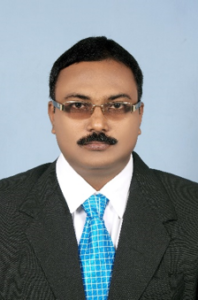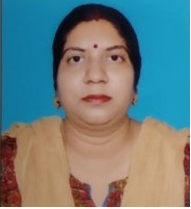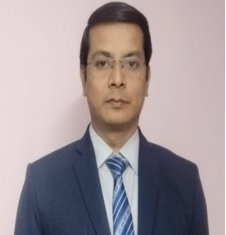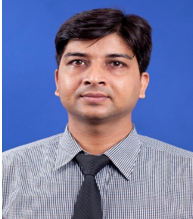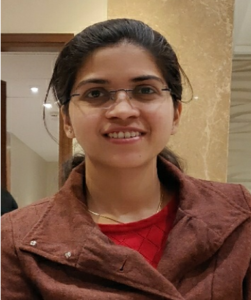Since liberalizing its markets in 1991, India has emerged as one of the fastest growing economies in the world. Globalization is molding the legal landscape in emerging economies and blurring the boundaries between global and local. Last century of the last millennium witnessed and generated the promise of improvement and development in the field of science, technology and law. That century also helped us to arrive at new economic, social, ecological and political arrangements all over the world. New horizons were opened in the field of trade & commerce, science & technology and law & jurisprudence. Various new areas in the field of law were opened. Now the world is heading towards rapid progress in all most all fields of knowledge including law and the globalization has changed the entire fabric of polity and society. Globalization and the changing dimension of the Indian economy and polity have thrown up new challenges before us. It has brought a tough competition in educational service sectors. We are facing tough competition not only from within but from outside the country. Internationalization and globalization of the legal education and the probable entry of foreign lawyers into India poses a serious threat to the legal profession in India generally and to the Indian lawyers and law students in particular. It is transforming virtually every sector of the world’s economy. This transformation has important implications for the rapidly globalizing market for legal services. With the shift of economic powers, India, China and other emerging economies are becoming central powers in this market.
Change is the law of nature and law is the regulator of social change. It is sine qua non for the development of rule of law and a sustainable democratic order. Law is also a social science and it is closely linked with society. A society cannot remain static and therefore, law in order to meet the changing requirements should keep abreast of time. It is not fanciful omnipotence in the sky but a flexible instrument of social order, dependent on the political and other values of the society which it purports to regulate. Thus, through its dynamism it is aspiring to strengthen the foundation of the economic order. In a democratic country like India where rule of law is driving force of the government, legal education assumes great significance. Legal education helps in bringing and establishing socio-economic justice. It is the heart and the very soul of the society for administering rule of law in a democratic country like ours. Therefore, quality legal education is to be imparted to the law students taking into consideration the changing needs of the society and in the changing era of globalization. The traditional views of legal education and research have become relic of the past. Now, a lawyer is expected to serve not only within the country but outside our country. They are also expected to start their carriers with renowned global law firms and global law schools etc. Different opportunities are there before the law students and these are ever widening e.g. legal actors, legislators, judges, civil servants, policy makers, lawyer in defense services, lawyer of banking and insurance sectors, corporate lawyers, corporate lobbyists, legal academicians and editorial writers, jobs in Legal Process Outsourcing(LPO) and many more. The new notion of law and jurisprudence demands a different attitude to legal studies and research. In the changing liberalized and globalized era it would be blunder for the law students to confine themselves only to mere traditional legal texts. They need to pay proper attention to the other related disciplines of study and to equip themselves as valuable knowledge workers and human resources to keep pace with the changing demand of the time.
However, it is in this national and international spectacle, interdisciplinary studies on the interactive dimensions of law, science and economics are gaining importance slowly but surely. Multidisciplinary approach to the study of law is gradually emerging as the need of the hour. Central University of South Bihar (CUSB) has adequate infrastructural facilities to provide the perfect ambience for interdisciplinary studies in law, in its true sense. However, the Department of Law and Governance started its journey since 2013 and has achieved various miles stones within the short span of time. Our students are successfully placed in different legal spheres including as legal academicians, judges, lawyers, corporate law officers, law officers in banks & insurance companies, politicians and what not. Department of Law and Governance under the School of law and governance, CUSB, is not only imbibed with multidisciplinary approach to the legal studies and research but it is making genuine efforts to disseminate such approach to both the privileged and underprivileged learners and researchers of law and jurisprudence. The school is striving towards imparting quality legal education to the students including the students who are from poor, oppressed, downtrodden and backward communities of the society. The mission of the school is to equip the students with critical, analytical and applied skills and also to make both transactional and litigating lawyers.
News and Announcements
Board of Studies (BoS)
BoS is a statutory body for each department/centre, primarily responsible for syllabus design and regular update. As described in the Ordinance section 25.10,
The functions of the Board of Studies shall be:-- To recommend to the School Board, courses of studies offered by the Department/Centre and continue updating syllabus;
- To take all steps in accordance with the provisions of the Regulations about teaching and evaluation of various courses/programmes of the Department/Centre;
- To recommend to the School Board measures for the improvement of teaching and research in the Department/Centre;
- To constitute panels of experts to be considered for appointment as Examiners, Board of Examiners for various courses/academic programmes and M.Phil./Ph.D. thesis representing various specializations of Departments/Centres; and
- To perform such other functions as may be assigned to it by the School Board, the Academic Council, the Executive Council and the Vice-Chancellor.
Notification of Constitution of Board of Studies 
Department Committee (DC)
As enshrined in the Ordinace-26, the Department/Centre Committee (DC/CC) shall consist of the Head of the Department/Centre, as Chairperson ex-officio, and all faculty members of the Department/Centre.
26.2 The Department/Centre Committee shall have the following functions, namely–- To make proposals to the Board of Studies on academic programmes concerning teaching and research, and the creation, specialization and abolition of teaching posts;
- To propose schemes for the maintenance and improvement of the standards of various programmes of study and research of the Department/Centre;
- To apportion the teaching and co-curricular work of the Department/Centre among the teachers thereof and monitor the proper execution thereof;
- To consider and decide on the assignment and utilisation of the space, equipment and other assets of the Department/Centre and other matters of general and academic interest of the Department/Centre;
- To consider and recommend perspectives and major thrust areas for research and to propose research projects to be taken up by the members of the Department/Centre, individually/collectively;
- To review and apprise the SRC/URC with the current status of research in Department/Centre;
- To suggest to SRC/URC norms related to qualifications and research experience of a faculty to be recognized as a research degree supervisor and to constitute Department/Centre Research Degree Committee (DRC/CRC);
- To suggest to University Admission, Teaching and Evaluation Committee (UATEC) on any issue related to admission, teaching, continuous evaluation in courses and students’ assessment of courses, offered by the Department/Centre to improve quality of education.
- To constitute such Committee(s) comprising members of the Department/Centre, and if necessary external experts, for framing and implementation of rules and regulations related to admission, teaching, continuous evaluation, maintenance of students’ records including alumni affairs as well as promotion of research and development; and
- To perform such other functions as may be assigned by the Ordinances or Regulations, or by the Vice- Chancellor/Dean/School Board from time to time.
Department Research Degree Committee (DRDC)
Departmental/Centre Research Degree Committee (DRDC/CRDC) deal with all matters connected with the Ph.D. Programme of the Department and report the matter to the University Research Degree Committee (URDC), as per University Ordinance-33. It consists of the Head of Department/Centre as Chairman and other faculties in the department.
Functions of DRDC/CRDC are as follows:- Allotment of Supervisor, Co-Supervisor, recording reasons for not admitting a candidate.
- Recommendation for extension of time for submission of thesis
- Recommendation to peruse a part of research outside the University
- Approval of the Course Work
- Assessment and Grading in Course Work
- Monitoring the research progress of the candidate
- Approval of Research plan proposal/language
- Sanction of duty leave to the Ph.D. candidate
- Assessment of Ph.D. work through pre-submission seminar
- Maintaining the record of research paper publications of the candidate
- 11 Recommendation of panel of experts for thesis evaluation
- Assessment of revised thesis for satisfactory compliance, if any
- Arrangement of Viva-voce in the absence of the supervisor
- Recommendation to waive the Viva-voce
Notification of Constitution of DRDC 
Research Advisory Committee (RAC)
A Research Advisory Committee (RAC) is constituted for every research scholar admitted in PhD programme. The Committee would guide the research scholar to develop the study design and methodology of research and to To periodically review and assist in the progress of the research work of the research scholar. The committee shall have also have power to recommend the co-supervisor and cancellation of registration
Notification of Constitution of RAC for- PhD students Jan2019 batch

- PhD Jul 2019 pdf

- PhD Sep 2020 pdf

Miscellaneous Department Committees
- Department Library Committee

- Local Purchase Committee

- Time Table & Workload Committee

- Discipline committee
- Student attendance and grievance committee
- Department placement committee
- Alumni committee
- Seminar Committee
- Objectives of the Program:
- To explore the procedural laws and to well verse in drafting and pleading.
- To interpret and analyse the legal and social problems.
- To know the values of Rights and Duties.
- To impart to the students the professional ethics, social responsibilities and norms of the established legal practices.
- To engage the students in independent and life-long learning in the broader context of legal change.
Programme Outcomes:
- Students are capable to find solutions to the problems by application of laws and regulations.
- Students are capable to promote community welfare.
- They work for finding the solutions to the problems by application of laws and regulations.
- Students are equipped with the knowledge of teaching methods through the subject on Teaching Pedagogy thereby to enabling them to enter the teaching profession and also in to the Corporate and IP Sectors.
- They are equipped with Business entrepreneurship along with Law background.
- Compulsory research projects are allotted to the students and this helps them to increase their analytical power and to enhance their research aptitude.
b. Eligibility:
As per Bar Council of India, the eligibility criteria is10+2 or equivalent examination in any stream from any recognized Board/University with at least 45% marks for General/OBC and 40% marks for SC/ST candidate
c. Intake: 150
- Objectives of the Programme-
- To explore and explain the substantial legal issues and to find solutions to these issues;
- To interpret and analyze the legal and social problems and to work towards finding solutions to these;
- To impart to the students the knowledge of teaching methodology;
- To enhance the student’s ability of independent thinking;
- To enhance the student’s ability in analyzing legal problems and finding solutions to these problems.
b.Programme Outcomes:
- To train the students in learning doctrinal and empirical research;
- To help the students to increase their understanding of the lawyer’s distinctive role in society and of the lawyer’s concomitant responsibility to contribute to society through public service and pro bono representation.
- To enhance the ability of the students to identify, formulate, and apply legal rules.
- To enhance the student’s ability to read and analyze judicial opinions.
- To increase the students ability to interpret statutes, regulations, contracts, and other similar legal texts.
- To help the students to enhance their ability to construct legal arguments and evaluate critically one’s own and others’ legal arguments.
- To impart the students the knowledge to identify and evaluate the practical consequences of various legal rules and to formulate policy arguments for and against those rules.
c. Eligibility:
The eligibility criteria is, students must pass with 50% marks in the final examination of Bachelor’s degree in Law, approved by the Bar Council of India, conducted by a University/college duly recognized by the UGC.
d. Intake: 38
- Objectives of the Programme-
- The ability to write clearly and effectively in a wide range of legal contexts and for various audiences, such as courts, clients, opposing counsel and academics.
- The ability to articulate one’s thoughts verbally in a clear and effective manner.
- Knowledge of and ability to use tools of legal research.
b. Programme Outcomes
- aThe ability to identify and gather factual information relevant to the application of legal rules.
- bThe ability to work collaboratively with others, including others with opposing interests.
- Knowledge and understanding of practical aspects of the legal profession and market for legal services.
c. Eligibility
LL.M. from any recognized University with 55% in aggregate or its equivalent Grade B in UGC 7 point scale. A Relaxation of 5% of marks from 55 to 50% or equivalent relaxation of grade for SC/ST/OBC(Non creamy layer)/Differently abled candidate.
d. Intake
[As per existing vacancy of the research scholars of each Faculty Members/Guide]
- Lab facility
- Research Lab
- List of instruments in the Lab
- Lab staffs and their contact
Lorem ipsum dolor sit amet, consectetur adipiscing elit. Etiam et fermentum dui. Ut orci quam, ornare sed lorem sed, hendrerit auctor dolor. Nulla viverra, nibh quis ultrices malesuada, ligula ipsum vulputate diam, aliquam egestas nibh ante vel dui. Sed in tellus interdum eros vulputate placerat sed non enim. Pellentesque eget justo porttitor urna dictum fermentum sit amet sed mauris. Praesent molestie vestibulum erat ac rhoncus. Aenean nunc risus, accumsan nec ipsum et, convallis sollicitudin dui.


